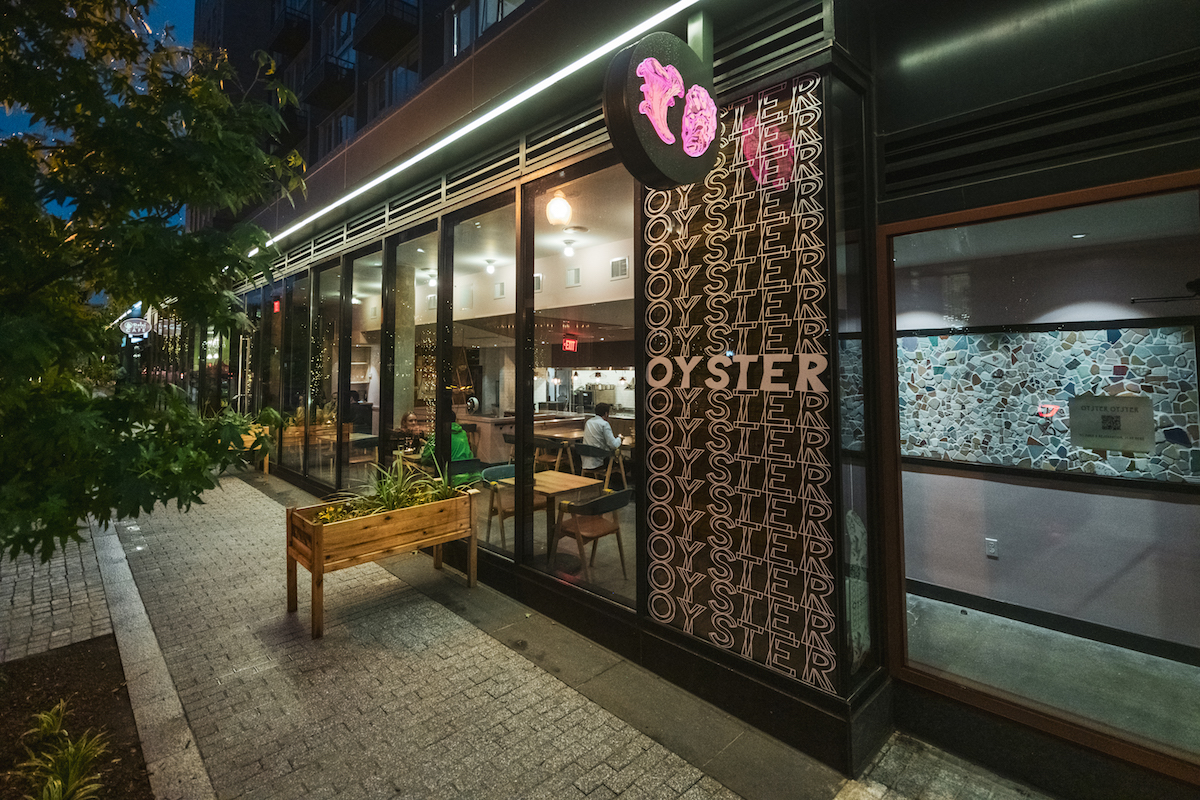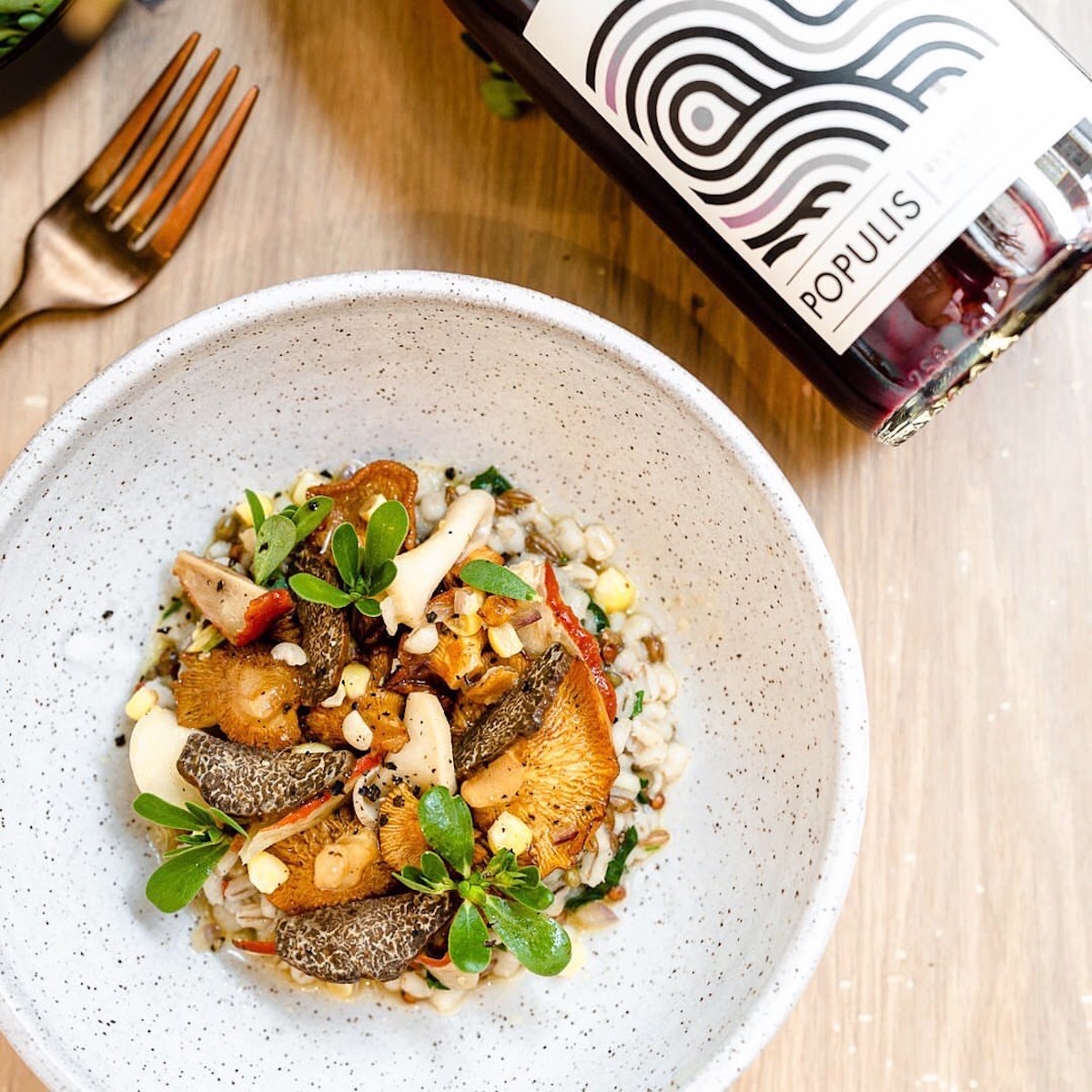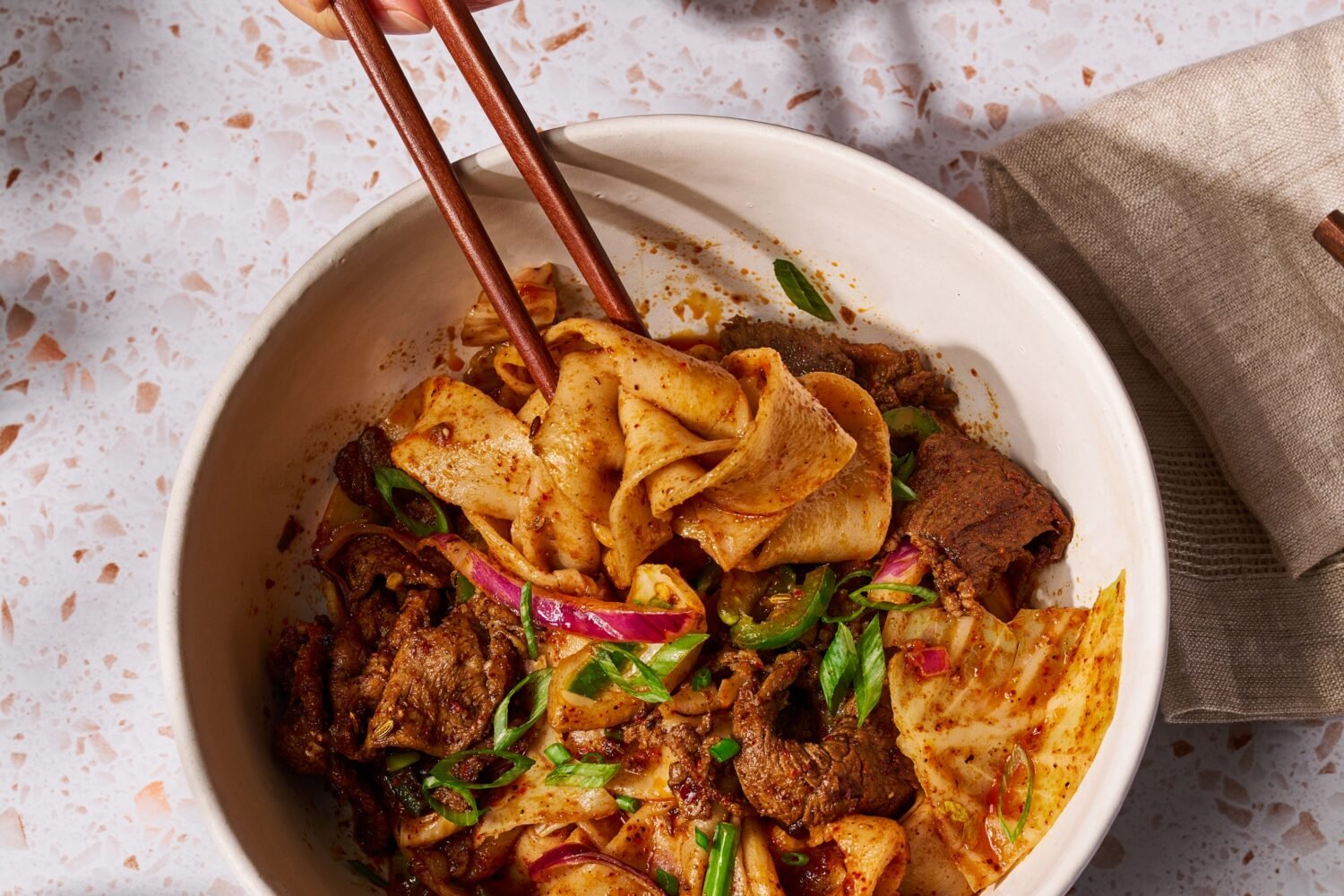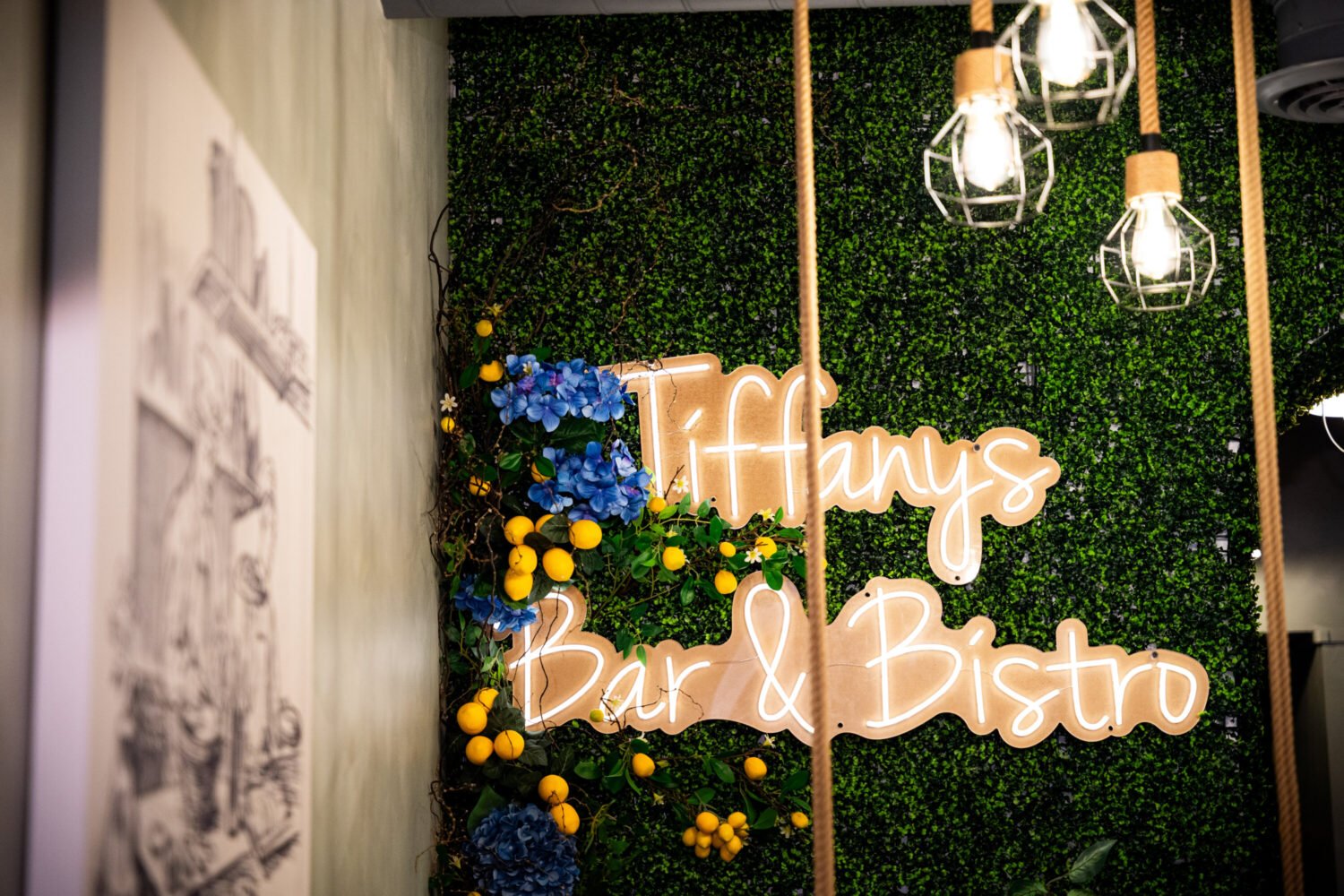About Restaurant Openings Around DC
A guide to the newest places to eat and drink.
Oyster Oyster has been many things since Estadio owner Max Kuller and ex-Hazel chef Rob Rubba started on the restaurant project three years ago. It started as an ambitious, hotly anticipated vision: a mindful, sustainable, vegetable-focused fine-dining restaurant in Shaw run by two die-hard “oyster-tarians” (vegetarians who eat oysters because they are non-sentient, help clean water, and improve the environment). But then it was forced to shut down just as the team was placing final orders from local farmers and training staff on skin-contact wines for a March debut last year. In the year since, the space has been pop-up bagel shop, an open-air garage for small pizza parties, and a takeout operation for farm dinners. Guests were never seated in the dining room. Most recently, Rubba served an abbreviated menu outdoors before closing down the restaurant entirely for a few weeks of recuperation.
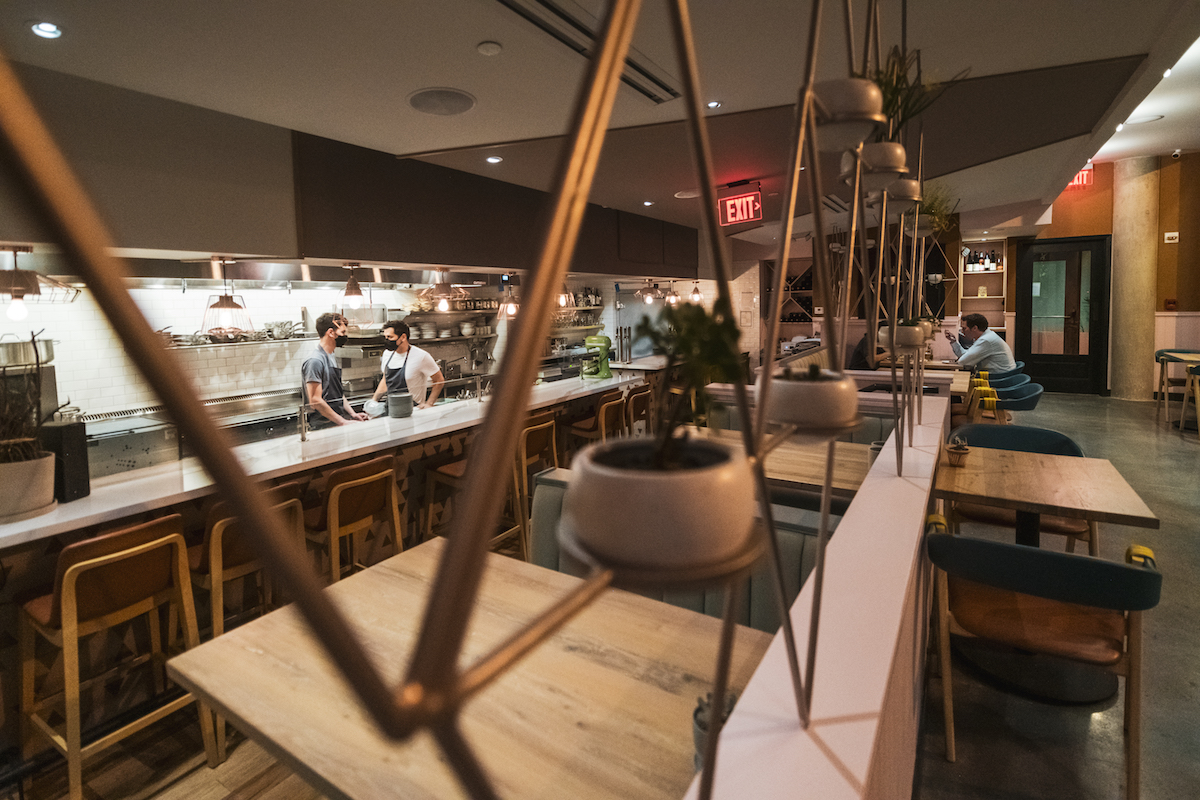
Now, Oyster Oyster—whose name refers to the bivalve and mushroom—is finally opening as the restaurant it was designed to be. Reservations are live for the “official” opening on Thursday, June 17. Diners will find a zen-like tasting room with just 28 seats—no takeout, no outdoor seating—and multi-course menus that can tweaked to be oyster-tarian, vegetarian, or vegan ($70 per person). Wine director Sarah Horvitz can pair the plant-based menus with sustainable organic, and biodynamic beers, wines, and ciders for an additional $55.
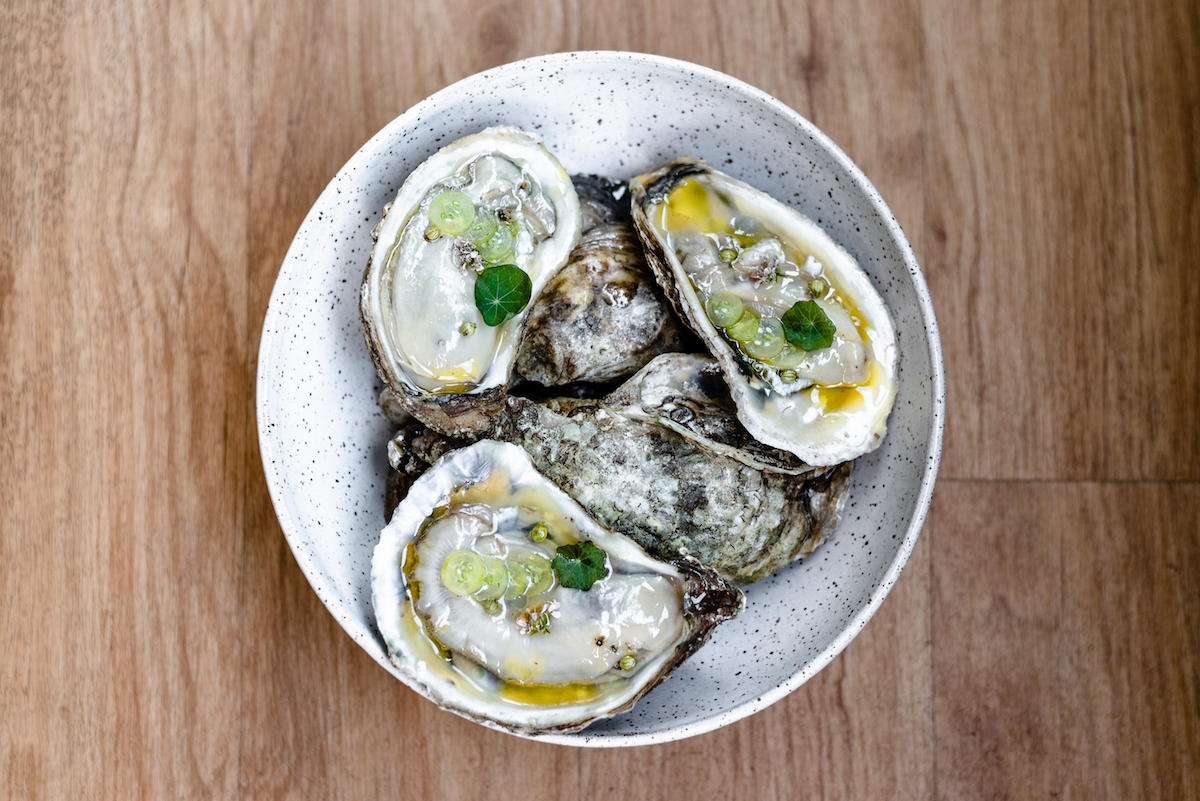
Even when Rubba was making mid-pandemic bagels and schmears, the restaurant’s commitment to local ingredients and hyper seasonality never wavered. Even workhorses of the kitchen like butter, flour, and oil are sourced overwhelmingly from the Mid-Atlantic, and don’t stray from the Eastern Seaboard. Tasting menus are described as “micro-seasonal,” capturing plants at different parts of their growth cycle and showcasing fleeting ingredients. Everything, from kombucha to tofu and bread, is made in-house.
“It makes our palate more reflective,” says Kuller. “I’m a big fan of this French literary group, Oulipo—they put restrictions on their creative writing to generate more interesting writing. We’re trying to do something that’s sustainable and local, but by doing it, it makes the cuisine more honest. The palate the chef is using tells a story of this place.”
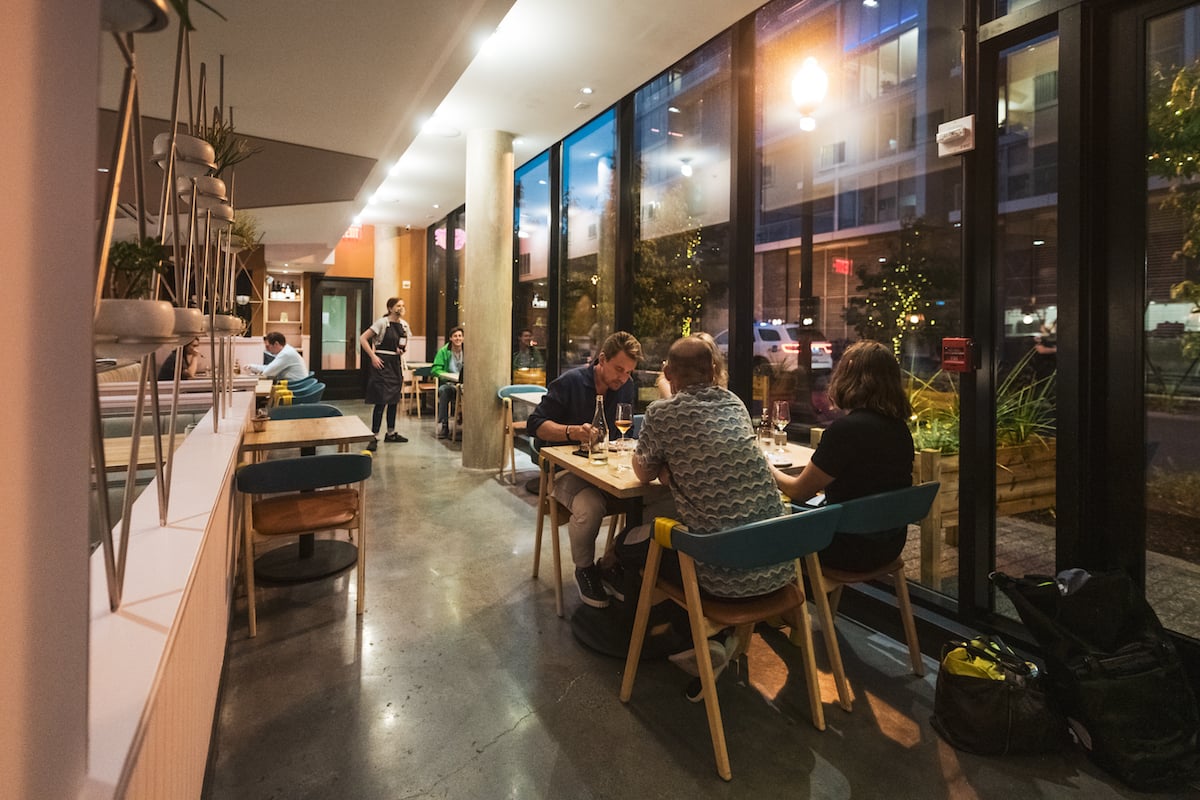
The only non-local element may be the place from which the restaurant drew inspiration. The lauded (and now closed) Relae restaurant in Copenhagen, a cutting-edge New Nordic spot founded by Noma alums, helped shape the vision for Oyster Oyster. “I was inspired by their cooking and commitment to sustainability,” says Rubba. “If they could make amazing food in the winter there, we should be able to make delicious food during the mild winter in the Mid-Atlantic.”
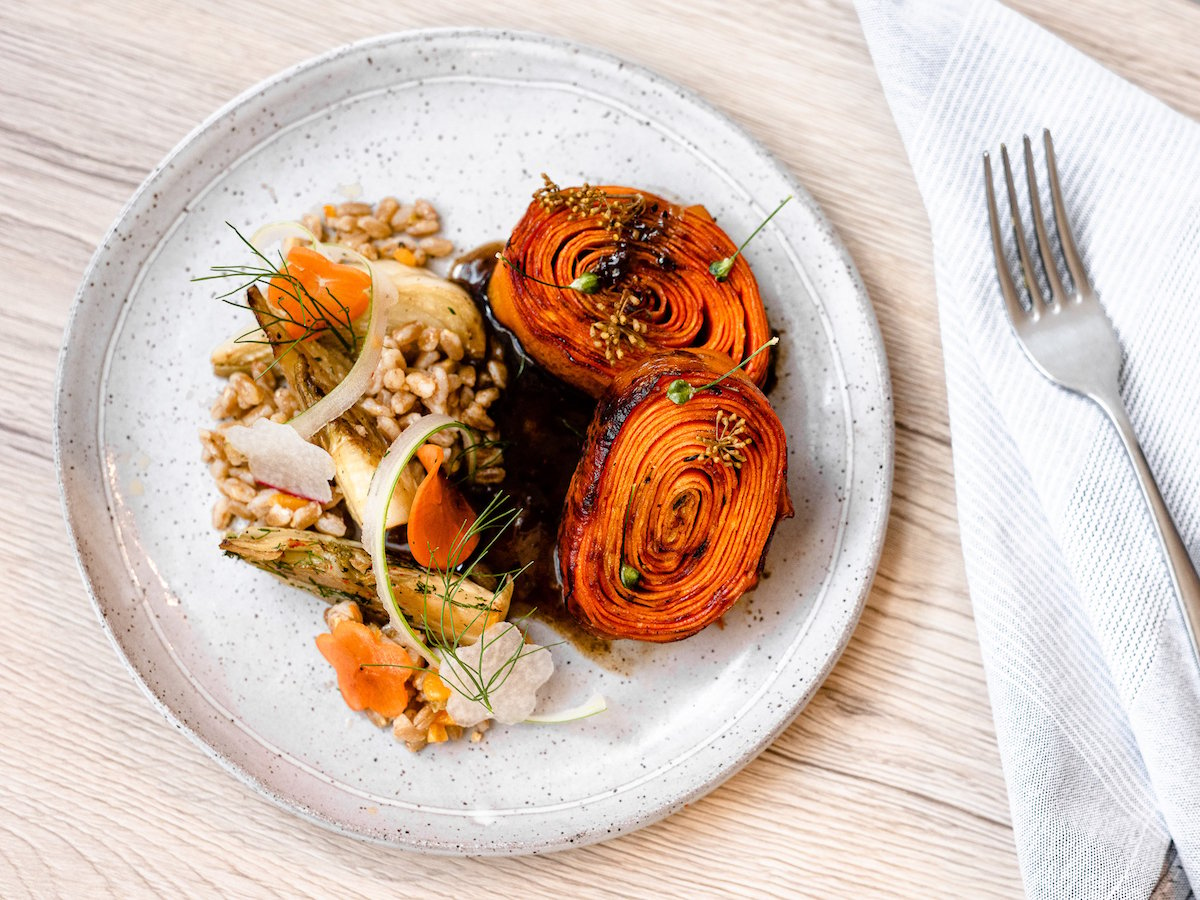
But first: bountiful warm weather. The opening menu, dubbed “solstice,” will include six courses and bread service (menu lengths will vary by time of year). Dishes might include “a study in peas” from Root & Marrow farm in Lovettsville, Virginia with new potatoes, peanuts, and sugar kelp, or poached kohlrabi with summer squash, chanterelle mushrooms, and fresh cheese. Horvitz might match dishes with Virginia ciders or bright, food-friendly wines that lean delicate or savory.
“Everything is popping up right now—fresh growths of young, tender vegetables that are driving the vibrancy of cuisine. There’s a lot of energy in what we’re doing right now,” says Rubba.
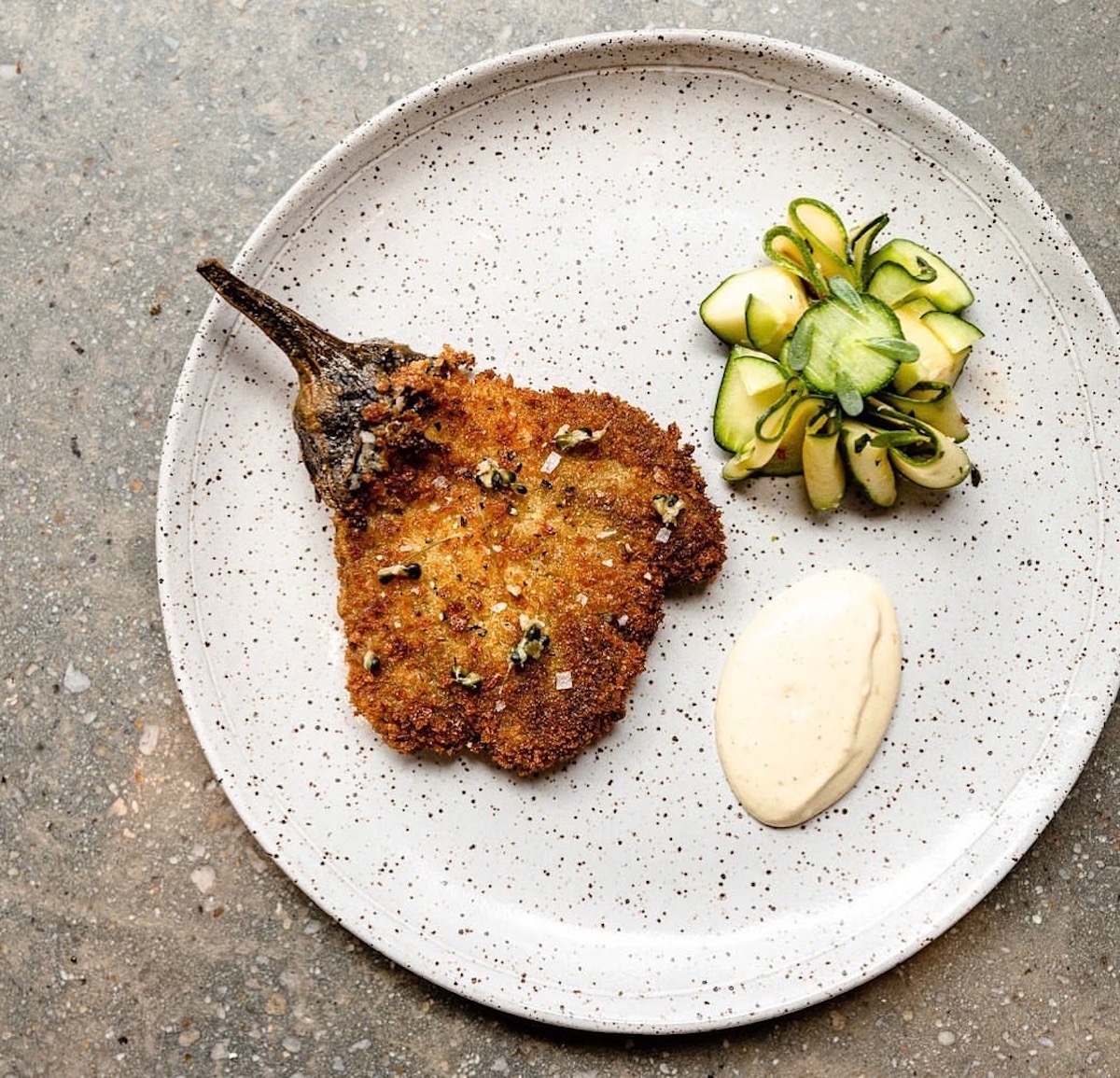
The intimate dining room with floor-to-ceiling windows is designed by Griz Dwight (behind the look of Estadio and La Famosa, among others). Many of the touches are salvaged and/or sustainable, such as mushroom boards along the walls, reclaimed skateboard decks at the bar, and bits of tile that Kuller picked up walking along beaches in Italy (sounds lovely, right?). Later this summer, the team plans to open their adjoining “Oyster Garage” as a laidback counterpoint to the tasting room, where patrons can get local drafts, gin cocktails, and play on vintage pinball machines.
Oyster Oyster is currently open Tuesday through Saturday for two seatings a night, 5 to 8:30 PM.
1440 Eighth St., NW
